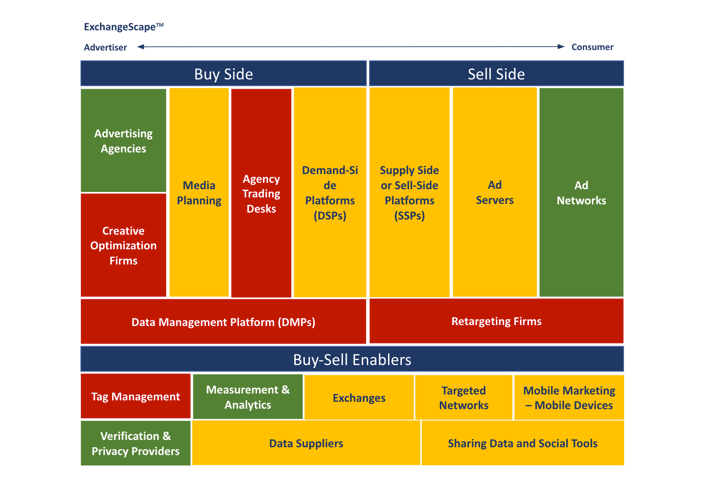Our second article, in our expert series by Steve Horne and Michelle Bottomley, outlines how businesses will experience a cookie-less future
Key takeaways:
- Regulations have created the conditions for a cookie-less, privacy rich future by 2022
- As a result, some players within the digital advertising ecosystem will thrive, others will not survive
- Richer data presents the opportunity to move from device-driven to individual-driven integrated marketing communications, including but not limited to digital advertising
- The T-Rex “Walled Gardens” are stepping into this new digital advertising space with 2nd party data able to augment advertiser’s 1st party data with behavioral insights
Introduction
In Article 1 we clarified why the cookie-less future will disrupt the Digital Advertising ecosystem. We outlined the changes afoot and why companies need to evolve to meet the new demands of privacy, while operating in the cookie-less world as digital advertisers and providers.
This article clarifies the impact on the digital advertising ecosystem as it evolves to meet the demands of the cookie-less future. Our intent is that you emerge with a greater understanding of the changes and potential outcomes so you can build your go-forward plan to survive and thrive in this rapidly evolving world.
How is the Digital Advertising Marketplace Changing?
The current Digital Advertising marketplace is made up of different types of providers with hundreds of players within each “domain” of functionality as depicted below.

Perhaps one of the most impacted players from the cookie-less future is the Data Management Platform (DMPs) which provide anonymized data to drive targeted digital advertising. Today, that anonymized data is collected via third party cookies. Third party data has duplicate personas which have not been an issue in today’s digital advertising world. However, multiple personas can include some opted-in and others opted-out of communications. This dual-state of being opted in and opted out could be solved through the use of identity graphs; unfortunately these are still incomplete and will need to evolve in order to be used in a cookie-less future.

Identity verification companies are part of the buy-side in a digital advertising ecosystem. Some of the largest providers of software solutions in the identity verification space are not tightly interconnected or cannot demonstrate high volume capacity to process entity data. For this reason, they will not be viable in the new cookie-less, privacy driven world.
Be aware of businesses claiming to have “complete” solutionsto perform many of the transactions identified in the diagram above. In many cases they attempt to provide this via “native Integration” of their platforms or services. Native integration almost never happens as “in-suite” providers promise because it often takes years to actually bring their products together into a viable “stack”.
Who is going to thrive or not survive?
We’ve created the ExchangeScape™ to clarify the digital advertising Buy/Sell Sides and Enablers, indicating in Red, Yellow and Green our predictions on which players will thrive, hold their ground or not survive the cookie-less, permission rich future. Descriptions of each group can be found here.

Our analysis of the digital advertising ecosystem, as indicated in the ExchangeScape players will not survive or become so heavily disrupted that they will need to make almost total changes or fall out of the marketplace, while four thrive and nine remain in some form. Here’s our take on how each player in the space will be impacted.
Five “Disrupteds” - Red Boxes
These players will either change to meet the new requirements or no longer exist.
- Creative Optimization. They will need new data capture techniques to be able to automate content without cookies
- Data Management Platforms. DMP’s are the primary source of cookie-based audiences. They will have to be transformed and may be the most disrupted
- Agency Trading Desks. Trading desks will need to either consolidate around a small group of companies or be absorbed into the media agencies
- Retargeting Firms. Data permissioning will be key to retargeting
- Tag Management.Tags will continue utilizing entirely different forms of tracking. Cookie-based tags will cease to exist
Four “Pillars” - Green Boxes
These players are likely to undergo further consolidation due to economies of scale.
- Advertising Agencies. Have been through a tremendous amount of consolidation, including absorption of the major data-driven marketing services companies such as Acxiom, Epsilon and Merkle.
- Ad Networks.Will undergo some form of consolidation, but not as heavily impacted as other segments in this space
- Verification and Privacy Firms. Will grow in both number and size with a high need to transform to cover the new technologies as well as the new requirements for privacy and identification.
- Measurement and Analytics. This will be a growth category, but may be involved in a new round of consolidations.
Nine “Reinvented” - Yellow Boxes
These categories will experience a lot of change and possible turmoil but offer opportunities for both investors and new players to move into the market with capabilities designed to deliver connected experiences and significant business impact. We will dive deeper into these opportunities in our third and final article of this "Growth Matters" series.
What is a “Walled Garden”?

In the cookie-less, privacy-driven future, businesses that provide the largest volume of advertising and individual transactions will only become bigger and more dominant. The “T.Rex’s” of digital advertising - Facebook, Twitter, Amazon, Google, Apple, Microsoft and a few others - will dominate the data-driven digital marketing landscape with their individual “walled gardens”.
A Walled Garden is a closed ecosystem in which all the operations are controlled by the ecosystem operator.
Recent legal issues are pushing back on these providers because they are so large that they dominate the individual markets that they serve and this is seen by regulators as monopolistic positions. At the same time, the regulators also want privacy which in some ways the “walled gardens” provide. This is a controversy that the regulators and the providers will have to work out.
This shift will allow marketers to reallocate media spend and invest those dollars in targeted relationship building communication with more of the right customers. Better insights into the individual from off-brand digital experiences provides enormous potential to reallocate media budgets while optimizing the acquisition, expansion and retention of more of the right customers, boosting both customer as well as enterprise value.
However, these “Walled Gardens” might prove an impediment to marketers because they are set up to be individually accessed as independent providers of advertising or marketing offerings (e.g. Google for search, Apple for devices, Amazon for purchases, Facebook for social, etc.).
While individuals will cross the various “walled garden” platforms with ease and with their privacy protected, they are likely to have very different “brand experiences” within each “walled garden”. Marketers will be challenged in setting up digital advertising programs within and across each of the “walled gardens” in order to efficiently reach the right target audiences and deliver a consistent set of branded experiences in a way that maximizes conversion to sale and ROI.

Summary
The cookie-less, permission rich future presents challenges and opportunities for every player within the digital advertising ecosystem. PE Firms looking to invest and consultants looking to guide these firms will need to maintain vigilance to the constant changes that are taking place and understand the disruption that is going to happen across the ecosystem to spot opportunities for consolidation and innovation. There will be winners out of this process and there will also be companies not able to adapt with many either bought or ceasing to exist. In Article 3, after having covered “Why” and “How”, we will cover “What” moves to expect as companies prepare for the cookie-less, permission rich digital advertising world.
How can Arbolus Help you Thrive in the Cookie-less Future?
Arbolus connects clients with the expertise to navigate new spaces, source deals, and conduct due diligence.
Questions to ask within your preparedness plan:
- What strategic partnerships or deals can create greater value and ensure success in light of this disruption?
- What will modern marketing teams require of their external partners as they navigate through and emerge from the cookie-less, permission rich future?
- How can partnering with the “walled gardens” help or hinder your growth plan? What are the expected risks and rewards?
Click here to connect with world class experts in this space, including Michelle Bottomley and Steve Horne.
Steve Horne
Steve Horne, Former Senior Partner at IBM, has the unique capability of discussing deep business insights with CEO's and their teams while at the same time understanding the technical aspects of Analytics and Big Data at the most advanced levels.
View on LinkedIn
Michelle Bottomley
Michelle Bottomley is an experienced Independent Director and C-suite executive for Fortune 500 companies who has led the transformation of some of the most iconic and legacy brands and businesses across a variety of industries.
About Arbolus
Arbolus is a knowledge-sharing platform investors and consultants use to collect more insights from the best experts, in less time.
Get in touch to find out more
.png)

.png)





